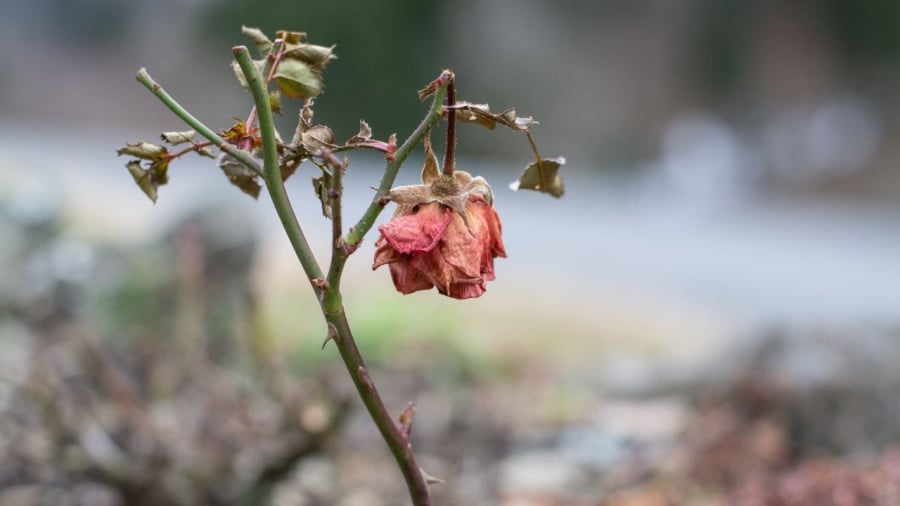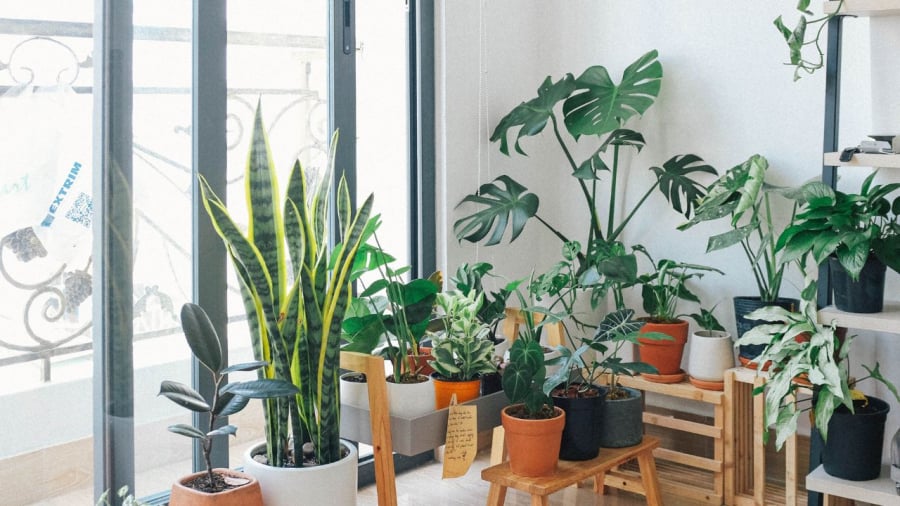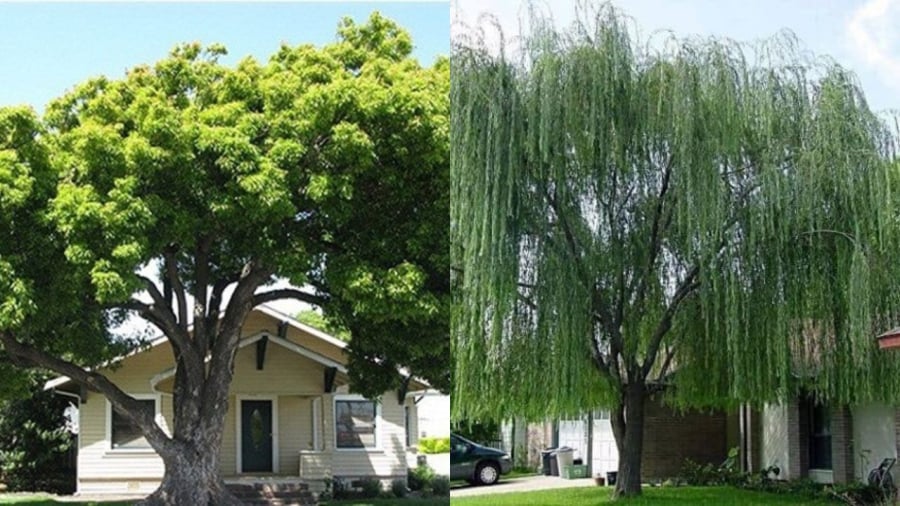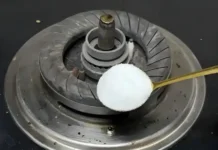In feng shui, plants hold significant meanings. Aside from decoration, they influence the luck of the household. Thus, not any plant can be chosen arbitrarily. Especially in feng shui, these three types of plants are avoided for planting in front of the house:
1. Dead or dried trees
Many people like to decorate their homes with dead or dried trees, often with peculiar shapes that spark curiosity. However, in feng shui, this is a big taboo.
Lush green plants represent life, growth, and abundant energy. On the contrary, dried and withering trees indicate a depletion of vital energy and fading luck. Displaying dead trees is akin to inviting bad luck into your home.
In feng shui, dead trees symbolize endings, loss, and ill omens. Placing them at your doorstep is like signaling a queue of misfortunes waiting to befall the household.

Aside from the spiritual implications, dead trees also detract from the aesthetics of your home, making visitors feel heavy and gloomy. They inadvertently create negative emotions for both hosts and guests. Additionally, dead trees might fall and injure someone if not carefully maintained.
Recommendation: If you notice any dried or withering plants in front of your house, don’t hesitate to remove them immediately. Instead, opt for healthy and vibrant plants to restore vital energy and invite fresh energy. Avoid decorating with dead plants.
2. Artificial plants and flowers
Many households prefer artificial plants and flowers to save time and effort on maintenance. While they remain perpetually vibrant, feng shui considers this practice a major taboo.
Artificial plants lack life force and are incapable of absorbing negative energy or bringing positive energy to the household. Instead, they stagnate the flow of energy, causing the house’s luck to become “frozen” and impeding its development.

Moreover, artificial plants tend to accumulate dust and bacteria over time, degrading air quality. This negatively impacts the health and well-being of your family members.
Recommendation: Opt for real plants, even if they are small and easy to care for, such as Japanese bamboo, money plants, snake plants, or succulents. These plants not only purify the air but also significantly enhance your finances and bring spiritual value.
3. Oversized green plants
While green plants represent vital energy, planting oversized ones in front of your house is not advisable. Such plants can absorb the positive energy of the household, leading to adverse effects on the home and its inhabitants.
A massive plant blocking the entrance acts like a wall, obstructing positive energy, light, and opportunities. Wealth and luck find it challenging to enter the house due to this obstruction. Oversized plants also create a gloomy atmosphere, tipping the balance in favor of yin energy over yang.

Additionally, during storms and hurricanes, oversized plants pose a safety hazard as they can easily fall and damage your property. Their extensive root systems may also compromise the structural integrity of your home, leading to potential wall or foundation damage. Aesthetically, an oversized plant blocking the entrance appears disproportionate and oppressive.
Recommendation: If you fancy large plants, consider placing them at the back of your house. For the front, opt for moderately sized plants.
Suggestions for lucky plants to place in front of your house according to feng shui
To attract wealth and enhance vital energy, consider the following plants recommended by feng shui experts:
Money Plant: Symbolizes wealth and prosperity, perfect for placing in front of the house or in the foyer.
Coral Tree: Its bright red flowers signify good luck and success, and its name implies financial prosperity.
Ficus Tree: With its straight and slender shape, it facilitates a smooth flow of positive energy into the house.
Japanese Bamboo: Represents resilience, endurance, and prosperity.
Remember to choose healthy plants with vibrant shapes, avoiding those with sharp edges or thorns, to ensure a positive energy flow for your home.
Information for reference only

































